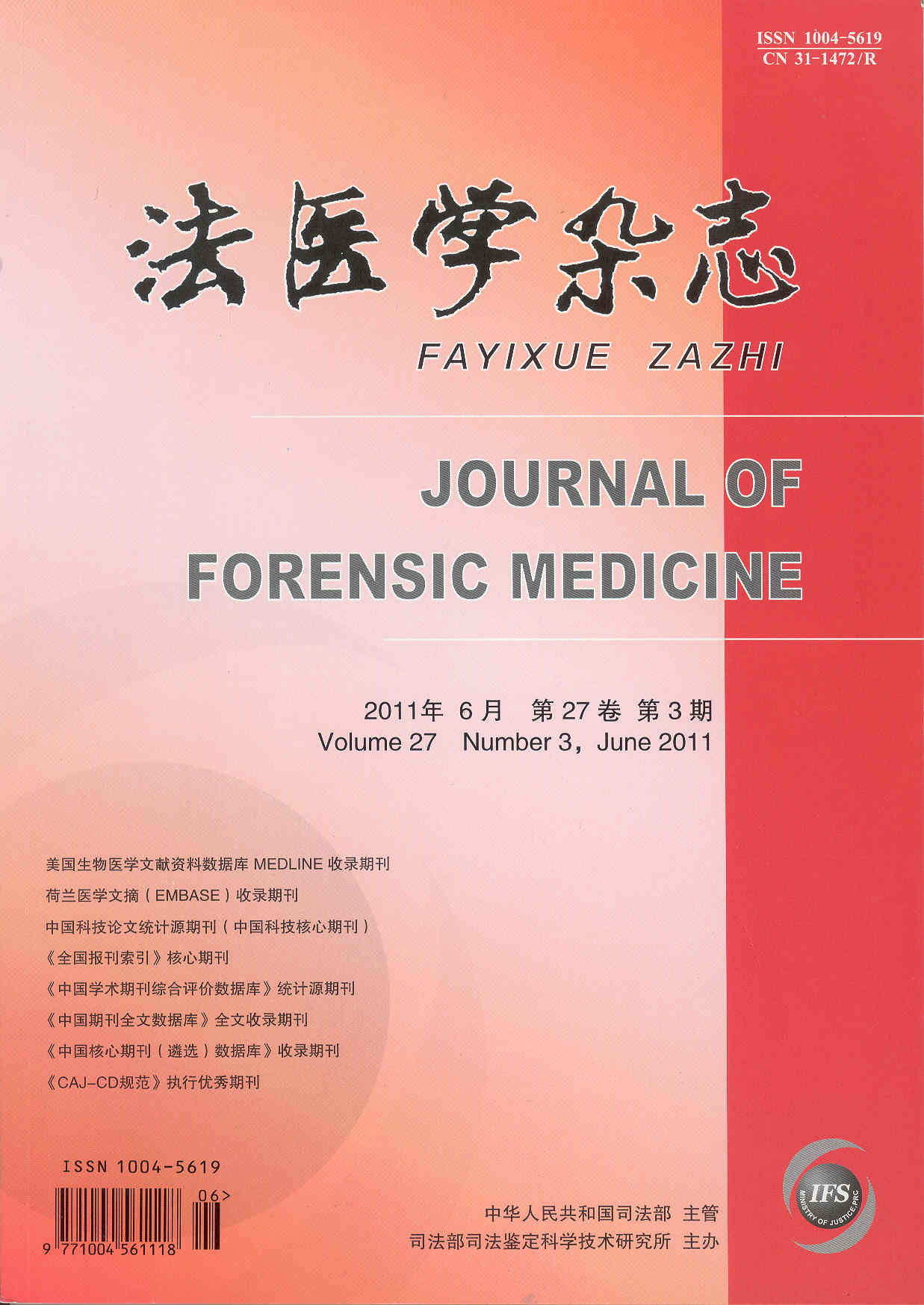|
|
The Effect of Temperature on the Postmortem Redistribution of Bupivacaine in Epidural Anesthesia Death Dogs
ZHANG GAO-QIN;WANG DA-LI;YUN KE-MING;ZHANG DA-MING (. SCHOOL OF FORENSIC MEDICINE;SHANXI MEDICAL UNIVERSITY;TAIYUAN 0000;CHINA;. CHINESE PEOPLE'S PUBLIC SECURITY UNIVERSITY;BEIJING 000;CHINA;. TECHNOLOGY DEPARTMENT;DETECTIVE DETACHMENT OF
2010, 26(2):
112-115.
Objective To establish the models of postmortem redistribution(PMR) in dogs with epidural anesthesia and to investigate the effect of temperature on the PMR of Bupivacaine. Methods Eighteen male dogs were executed by epidural anesthesia with a dose of 5 mg/kg bupivacaine hydrochloride and randomly divided into three groups,room temperature(20-23 ℃) group,4 ℃ group and -20 ℃ group. The cardiac blood,peripheral blood,liver and cerebrum were collected at 0,2,4,8,24,48,72,96,120 h postmortem. The contents of bupivacaine in those samples were analyzed by GC-NPD and GC-MS,the difference among three groups were compared. Results The bupivacaine PMR of room temperature group was evident and complex in cardiac blood,peripheral blood and cerebrum. The PMR of 4 ℃ group was weaker and slower than that of normal temperature group. The bupivacaine PMR of the -20 ℃ group was the weakest in three groups. Conclusion PMR of bupivacaine will happen in epidural anesthesia death dogs,but it could be delayed or prevent by low temperature storage.
Related Articles |
Metrics
|


